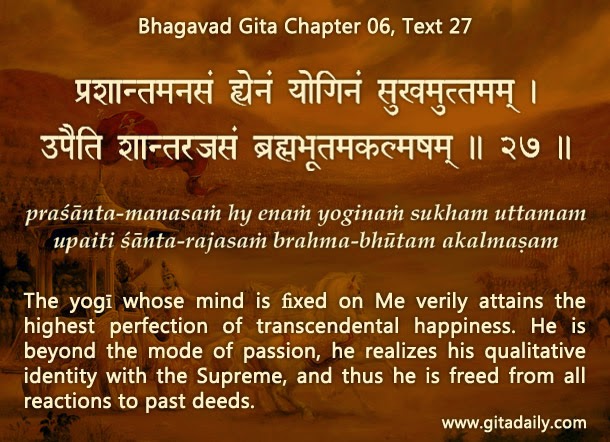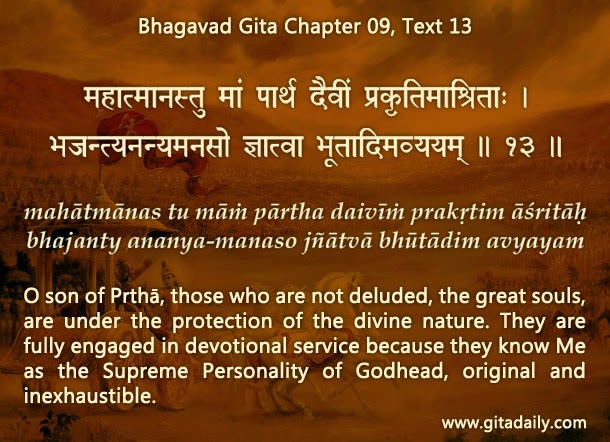“Help!” That’s how a person fallen in an
ocean calls out for rescue. But suppose that person is intoxicated and so
doesn’t even realize the danger, leave alone call for help.
Might that be our situation?
Gita wisdom compares material existence to
a vast ocean wherein we souls are being tossed by the waves of material
desires. The pleasures these desires promise turn out to be temporary and
unsatisfactory – they leave us craving and slaving for more. No matter what
self-help techniques we try out or what external help we seek at the material
level, nothing changes the disappointing nature of material pleasure. Wave-like
desires keep tossing us around, harried and helpless.
Surrender is the spiritual equivalent of a
drowning person’s call for help.
Being supremely compassionate, Krishna is
always ready to help us overcome material nature. All we need to do is
surrender to him, as the Gita (07.14) declares. Surrender is the spiritual
equivalent of a drowning person’s call for help. We express our surrender by
practicing bhakti-yoga wholeheartedly. By so doing, we let Krishna help us – we
open our heart to receive his help, which comes frequently in the form of
higher wisdom and taste.
Unfortunately however, sensual pleasures
that seem available just around the corner often intoxicate us. This
inebriation blinds us to our precarious condition and takes away our impetus to
call for Krishna. Thus, we unwittingly sentence ourselves to the turbulent
material ocean.
Regular study of the Gita empowers us to
see through the façade of sense pleasure. It reminds us how helpless we are
without Krishna and how much we need him. This reminder inspires us to seek his
help. By thus opening our heart to him, we help ourselves in the best possible
way, for we let the best possible help – Krishna’s light and love – rescue us
from the ocean of illusion.









 The fear of death is one of life’s most
haunting fears. Intriguingly, this haunting fear can become illuminating if we
turn the usual question raised by death on its head: instead of asking “Why do
I have to die?” ask “Why do I want to live forever?”
The fear of death is one of life’s most
haunting fears. Intriguingly, this haunting fear can become illuminating if we
turn the usual question raised by death on its head: instead of asking “Why do
I have to die?” ask “Why do I want to live forever?”

